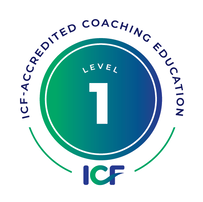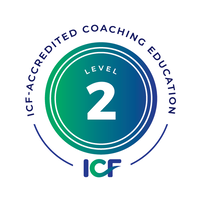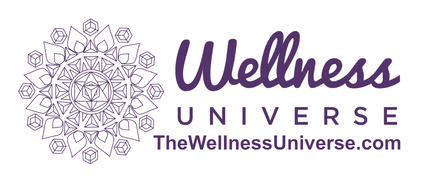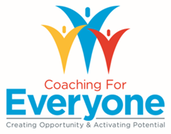|
Laurel Elders:
Welcome everyone, to Coffee Coaching and Calling, a live podcast created for coaches, leaders, and helping professionals that are on a mission to lead a successful and heart centered life. Your host today is myself, Laurel Elders of the Institute for Integrative Intelligence, where it's our mission to elevate human potential through the art and the science of masterful coaching. Today's podcast will be focusing on business success. And I have with me today Mark Silver, the founder of Heart of Business. Mark has worked with heart-centered entrepreneurs since 1999, helping them realize that every act of business can also be an act of love. Mark is one of the pioneers in integrating real spirituality with the nitty gritty of small business. And I've invited Mark back to join us today because we are celebrating and discussing the release of his new book, Heart Centered Business: Healing from Toxic Business Culture so your Small Business Can Thrive. Welcome, Mark. Mark Silver: Yay. Thank you, Laurel. I'm so delighted to be here. Laurel Elders: Yeah, I'm so excited about this book and, um, already diving in. I have taken away so much. I was like, "oh my gosh, what do we not talk about?" Mark Silver: Right on. That's great to hear. Laurel Elders: Yeah. So you know, I was kind of thinking of just starting off with maybe the elephant in the room, because there are some people that the term "heart-centered" might symbolize, maybe a little fluffy. I know when I first started my career in my twentys, I was like, oh, heart doesn't belong in business. That's not professional. We have to be very professional. And yet this is so not the case. So not the case. I'd love to hear your thoughts on that. Mark Silver: Yeah. There's so much there. Most of the ills in business are because of that exact myth. I mean, there's so much, but you know, this idea that, business is not an appropriate place for love and care, that business is not an appropriate context, for caring relationships, is so much of what's made it toxic. This idea that it's only about money and that professionalism means that we can conduct, uh, a proxy war through damaging, uh, the climate, and damaging our communities, damaging the customers, damaging our competitors, and damaging ourselves. I mean, what's the point... Who wants to live in this reality that has been created through these lies? It's really... So painful. It's so painful. And it's also really impractical. It works in that you can accumulate wealth as capitalism defines wealth, but it doesn't work for so many people. It doesn't work and it can't continue. I mean, capitalism has really turned commerce and trade into a cancer that's killing us all. It's terrible. Not to put too fine a point on it. Laurel Elders: Yes. When people are, um, unhappy in the workplace. I talked to one lady and she said I could physically see my colleagues aging in front of me. That's how toxic it was. And yet, what's fascinating is the research coming out that I've come across is saying that the companies that are shifting that, they're shifting their leadership, um, they're shifting the culture into a more coach-like culture, more positive and supportive. Those are the companies that are doing much better. Mark Silver: Right. And you're saying "those" companies and I'm assuming that you mean companies that are... Laurel Elders: Shifting. Mark Silver: Including heart and shifting in some way. Laurel Elders: Yeah. Mark Silver: Yes. I missed that whole context. I'm just guessing. So, um, that's fabulous. I mean, I think that there are all these hidden costs, or not so hidden costs. Um, you know, when people are deeply unhappy, there's turnover. There's... Uh, people tend to sabotage their work environments in ways that I can't blame them for. There's all kinds of things that damage businesses that aren't willing to care for the relationships that are involved. Laurel Elders: Yeah, yeah. I love that you brought up the money piece because, I've noticed that companies can be so linearly focused on that piece that they miss success in these other areas. Sometimes accidentally, sometimes not. But I also love that you brought up in chapter two, you really challenged the notion that money is just energy. And I love that you called this out. I'd love to hear more on your thoughts. Mark Silver: Yeah, well, that's a popular refrain in certain, you know, pop culture spiritual circles. Well, money is only energy. And okay, you know, everything is only energy at a certain level, or expressions of the divine presence or expressions of love. But the physical world matters. We end up privileging... A lot of people in spiritual circles end up privileging the inner experiences over the outer world. And the outer world is just as sacred and just as holy and just as divine as our inner experiences. And money only exists as money in the physical world. You know, if you have a wonderful feeling in your heart, you can't buy food with that. You know, it's not that it's irrelevant. It's just that, uh, I'm trained as a Sufi healer. I'm trained as a spiritual healer. So it's not like I don't spend a lot of time working spiritually. But... And for the healing to be complete, it needs to move into the physical world. And this means not just having an alignment in your heart with the love, but also paying attention with care to your accounting, to making sure that your pricing is sustainable and not unethical, either at one end because you're harming yourself, or at the other end because you're harming people in the marketplace. You know, you need to pay attention to your business model. You need to pay attention to all of these pieces, not because the spirituality of the love stops, but because it doesn't stop. Because the love extends into those pieces. And it allows us to examine and be with all of these details with love and with care and with a sense of the sacred. Laurel Elders: Yeah, yeah. What that brought up for me was, it's my relationship to money that carries energy. Mark Silver: Yes. Well, uh, everything at heart is about relationship, at least from the Sufi perspective, you know. Everything is an expression of the divine. And how we're relating to the source of love is, you know, ultimately what guides us. And if we're seeing money as evil, um, then we're going to have not a great relationship with it. But also, if we don't look with our eyes wide open at the, um, injustice built into our economy and the unjust and unfair ways that, money is used in our culture, then we're also not going to have a healthy relationship. We need to really be able to look reality in the face. We need to be present with it. And then we need to bring both love and care and competence to the whole picture. Laurel Elders: Yes. Yeah, I love that. I also really appreciate that you brought some of the history of unethical marketing strategies into the book. It really helped me understand why I had such a horrible reaction to marketing when I first started out as a coach. Mark Silver: Yes. Laurel Elders: Let's just push the pain and the fear and let's just push that on people. And it's not... Mark Silver: I know... It's so terrible. And most people, you know, others have done a much more in depth historical study than I have. But, the research that I did, revealed that in the early days of the then new field of psychology, where people were starting to gain insights into how our minds work. A lot of those early psychologists were hired by the then new field of marketing and advertising. The new firms that were coming up on Madison Avenue in New York City and they were very deliberately, very deliberately, using manipulative, psychologically manipulative techniques to sell things. And it's been with horrifying consequences, you know, because, it's built all kinds of unnecessary things into this world. I mean, one thing that I think of know, Gillette wanted to sell more razors. And so they started this whole manipulative campaign to get women to start to shave. I mean it's just weird, you know. And so we have all of these ways that we've deformed who we are and, adhere to these unrealistic standards because companies want to make money off of it. And instead of there being just a healthy relationship with companies that with people, with organizations that are wanting to provide needed services, you know. And it's something that really can be shifted and needs to be shifted if we're going to have a healthy culture. Laurel Elders: Yeah, yeah. I completely agree and I was watching... It reminds me, I was watching a segment on MTV when they first started out and they started shifting away from videos. They would send people out to talk to teenagers. They would say, what would shock you? And they had gathered this data and then they'd put out shocking things. Their ratings skyrocketed. But it wasn't because people wanted to watch it. It was because, they were like, what is this? But their ratings skyrocketed. I mean, it was just so fascinating. Mark Silver: It's so fascinating how all of this operates. And we see this on social media. It requires a lot of what is required, I think, and this is what we see with our clients, is that as we help and support people to connect more deeply with their hearts, and lots of people do that anyway. There's lots of people that have spiritual practices or have other ways of connecting. Some people don't yet, and they can be supported to learn that. But often there is this gap where they're in connection with their heart, but not in the realm of business, or not in the realm of actually developing their business. They'll spend all this time even connected to their heart, doing what they do for their clients. But then it's like, oh, it's time for marketing or it's time for systems or it's time to set up the business model to look at the website. And suddenly we get swept up with uh, either survival fears or listening to these "shoulds". And instead we can also be in our heart in those situations too, in those contexts. And we can reject the manipulative advice that's out there and instead find a pathway through. Not that there's not learning, we can learn how to do a sales conversation ethically. We've taught lots of people around that. I mean, one of the things that I see, to kind of weave this piece together also with the internal and the external, um, we see a lot of people come to us who say, I need to work on my receiving because my business isn't doing well, and so I need to work on my ability to spiritually receive. And it's not that people don't have issues with spiritual receiving, but I'm saying, okay, well let's look at your business first. And we find that the messaging is just not clear. People are confused. The pricing is not sustainable. They don't know how to hold an ethical non manipulative sales conversation. So they've just been, um, not holding sales conversations well at all. And when you start to put those pieces in place from a place of love and care and ethics, the business can start to work. And yes, there may be issues around receiving, but they're going to be way smaller than the person originally thought. Because these external pieces needed to be brought into alignment, um, needed to be learned and put in place. And um, I love it so much that we can build structures out of love so that our access to love and care isn't solely dependent on our ability to choose in the moment or our emotional mood in the moment. We get hit by so many things. There's so many things, there's so many terrible things going on in the world. And when we get hit by that, it can be hard to choose love. It can be hard to choose to be in flow. Even just an ordinary thing, like, maybe our business is experiencing a dip. And then we go into survival fears. But if we have structures to support us, we can find our way back to our heart. Um, and that's not just spiritual practices, but these business practices like, oh, I know how to hold a sales conversation from the heart. Oh, I've crafted this marketing that already has love built into it. Means I don't have to put out a fear filled scarcity. Oh, my God, I need money, so I've got to manipulate people into buying. We can lean into the structures already built, be effective, get clients, but without, um, I'm repeating myself. Being so dependent on having to show up enlightened in every moment, which is just unfair, unrealistic, not a compassionate way to be in business with ourselves. Laurel Elders: Yeah, well, I love also, in chapter eleven, Embracing the Journey, you really talk about, um, this concept and how to be fully present, but also you bring up, um, backwards excellence. Mark Silver: Right, right. Well, this is something that's so interesting. So, I am a.... I practice... Practicing Sufi Muslim. And in fact, I'm fasting today for peace. Muslims all over the world are fasting for peace and justice. And, I'm feeling... And so what.... Excuse me, I got a little bit... When I'm fasting, I'm not always so clear. Anyway, um, so what I've noticed is that, human beings often get things backwards. Like, when we try to do something, we often get things backwards, from how the divine or how the essence, the source of love does things. And so, when we want to have an excellent or a successful business, what we try to do, is we try to work really hard to create that excellence. An then... Because we're feeling the lack. We're feeling, oh, my God, I've got to work hard to create the excellence. And what that does is that means that our actions are expressions of that lack. Right? We're feeling that lack expressions of our lack. And so the results tend to be emptiness, tend to be lack, tend to be, like, not the excellence we're hoping for. But the Sufi teachings that I learned, uh, that I received from my sheikh, from my teachers, explain that that's backwards. Like, if we can take the time to feel our thirst for love, for excellence. And then we can receive that in our hearts and fill up with it. And then we can express it in our actions. We take actions from that full place. Our actions, even if they were just if they were the same, as the previous example, they're going to be expressions of love rather than expressions of emptiness. And to put this in practical terms, if you know how to hold a sales conversation, for instance, I keep coming back to this example because it's an easy one. But you can say the right things. But if you're feeling fear in your heart, that fear is going, like, people are going to hear that and feel that. And you can say, okay, well, you decide according to what you need, but your mouth has gone dry and you're swallowing funny because you're worried that they're not going to say yes. Uh, we can feel that, palpably. They can feel it. You can feel it. But if you've been able to access love and access the care and access this desire to be in service, then your words, even if they're the exact same words, are going to feel completely different to the person receiving them. And you can say, I would love to be of service to you, and it's really up to you. See if this resonates with you. And there's a deep knowing in my heart that I'm being cared for and that I don't need this particular individual to say yes. Um, and that creates so much love and trust in the connection. Laurel Elders: Yeah, I've experienced what you're talking about. I, um, worked at a company. There were two companies that delivered the same services in the city. And, um, the other company, people, customers would go to them and say and they would tell them, like, no, don't go to the other place, just come to us. And then when people would come to us, we'd say, well, go check them out, but this is who we are, and what are you looking for and how can we be of service to you? There was never... It was just, our goal was to care about what they needed, and maybe it was the other company we didn't know. And nine times out of ten, they'd come back to us because we were honest and open and not schmarmy. Mark Silver: Right. Right. People can feel this. It's like I talk a lot about spirituality because I think that accessing love in some ways can be very simple and in some ways can be a little.... Sometimes it can be challenging and sometimes there are ways to access it that make it easier. And a lot of times it can be really simple. Like what you're saying, just expressing this genuine care. And that had to come as a transmission, if you'll allow me that spiritual word, from the owner of the company, from whoever's running the company, they had to believe that in order for you, as someone who worked in the company, to also trust that to say, oh, the owner really wants me to care. A lot of times we can have these messages like, oh, yeah, I want you to care. But then all the other messages is like, oh, you've got to hit your numbers. We got to hit the quota. I want you to get as many as possible. And then when you're pushing like that, it's undermining that message of care. When just as you're seeing, I think, as so many of our clients have seen, that when you bring that care yes, with quality, yes, with structures, yes, with understanding how to make your business work. But when the care and the love is what is embedded in it, it makes the difference. Laurel Elders: Yeah, absolutely. And one thing that I've always resonated with when I've worked with you, and you are one of my favorite business mentors, because you embed the heart, the humanity, and very clear step by step, here's where you can put your foot next. The structure piece that also helps a business succeed as well. And that shows up in the book, too. I also appreciated with this the emphasis on healing. You start off chapter one and, um, I didn't realize how much healing I needed around money and business and all of that. And over the years, I've really learned that from you. So I just want to appreciate you.. Mark Silver: Thank you. Laurel Elders: I appreciate that because I do see so many people that have integrity. They care about integrity. They care about who they are in the world. And so your offerings... Your messages and teachings really offer a path for them to be able to come from that place and succeed. Mark Silver: Yeah, I mean, we want to see people thrive, exactly. And I think that, again, this intersection between really caring for justice and having the world be a better place, wanting a business to work and wanting this connection to love. Like we need all of these things, I find, have to come together for things to be really fulfilling. And the healing that you mentioned, um, sometimes it works like magic. I witnessed that. Uh, it's like I have a heart heal, somebody has a heart healing. And then suddenly business just shows up. That happens. And what also happens is what I think more consistently and in a more trustworthy manner, in a way that you can count on, is that the healing helps us have a healthy relationship with business development. It helps us have that ability to go, oh, I've hated sales because it was done so terribly to me and I see such terrible examples. And so I can't approach it without feeling gross. But when we go through healing around how to relate to the people who need our services, then we can learn heart-centered sales with an open heart. Instead of, like, bracing ourselves, going, no, um, I'm going to turn somebody I don't want to be. Instead, we can begin to trust. Like, oh, I'm not going to be changed. I'm going to be deep in it. I'm going to bring my values to this. And then you can learn something new and then the business starts to work better. That intersection of healing and business structure and business development, I find such a winning combination for folks. Laurel Elders: Yeah, absolutely. And, um, to me, this book, I think, should be a prerequisite to any business owner that really cares about the integrity piece and is more mission driven. Um, yeah. It's such a solid foundation to stand on. Mark Silver: Thank you. Laurel Elders: It's also really fun because you've put QR codes throughout all the resources. I found that to be really fun, also. Mark Silver: Yeah, absolutely. I'm so used to either teaching courses or working in our membership group or working directly, individually with clients to be able to not just present information, but to help people, lead people through processes that I didn't want the book to just be what was on the page. And we wanted to go, okay, so it's easier for some people, instead of reading an exercise on a page, to be guided through it or to have access to some other resources. I'm glad that landed in a beautiful way. Laurel Elders: Yes. All right. So, again, the book is Heart-Centered Business, and you can purchase it on Amazon or visit heartbusinessbook. com and, um, there's so much. It's such a rich book, and yes, I highly, highly recommend it. Highly recommend Mark's work. You can also find Mark's work at heartofbusiness. com. Thank you so much for being here, Mark. It's always a blessing to be with you. Mark Silver: Thank you, Laurel, and you, too. Your work in the world is so important, and I'm so grateful that you've been working and showing up so consistently with it over the years. It's a profound, um, change and healing in the world of coaching, and I'm just really grateful you're doing it. Thank you. Laurel Elders: Thank you. All right, everyone, thank you for joining us today. We hope these messages have been a lantern to your path as you expand your success as a coach, leader, or helping professional. You can join the conversation further at integrativeintelligence. Global. Bye for now.
0 Comments
To read our latest article posted on LinkedIn:
CLICK HERE |



 RSS Feed
RSS Feed





